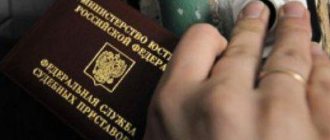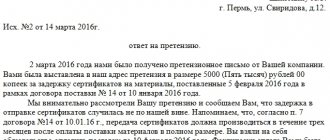The legislation of the Russian Federation gives law enforcement officers the right to detain certain persons under certain circumstances. The grounds for restriction of freedom are listed in Article 91 of the Criminal Procedure Code (CPC), as well as in Article 14 of the Federal Law No. 3 of 02/07/11. Unlawful detention by police officers is a departure from procedural norms. Such an act can be appealed, and the perpetrators punished.
However, a citizen must prove a violation of legal norms. And during the detention, act within the legal framework so as not to be accused of other offenses. Let's figure out what to do and how to deal with the arbitrariness of law enforcement officers.
Why you need to read this material
There are two reasons why it may seem that you do not need to read such texts: blind faith in the law or lack of faith in it.
In the first case, you believe that the police will never be interested in you, because you are not violating anything. But alas, the reasons for interest on the part of law enforcement agencies can be completely different.
In Moscow, a human rights activist was detained. In Moscow, a human rights activist Ilnur Sharapov was detained for playing petanque. In Arkhangelsk they “stopped”, examined and deprived of “All the evidence is not enough for them.” Is it possible to drive drunk in Arkhangelsk while in Finland and have a license for driving while drunk from a Muscovite who was in Finland at that moment. And at a hip-hop festival in the capital, “How the Dogs Behaved” was detained. A Moscow student went to a hip-hop festival, was beaten by a police officer and received a concussion not only from the troublemakers, but also from people he met.
In the second case, unfortunately, it is not easy to convince you. The further text will be based on the norms of the law and will tell you how everything should be. But there are no guarantees that these standards will be strictly observed. At the same time, you need to know your rights: it will be much more difficult to violate them, because at a minimum you will be able to demand their compliance.
Therefore, the text is worth reading. It will be even better if you never need it.
Complaint
Every citizen has the opportunity to appeal against detention if it is illegal. Within three days from the date of sentencing, a person applies to the cassation court. If the court takes into account the plaintiff's arguments, all charges are dropped. The complaint for illegal detention itself must provide clear arguments that the arrest is unlawful in nature. This is worth paying special attention to.
Compensation for illegal detention is paid from the local treasury. In most cases, national courts refuse compensation for moral damage, and therefore it is worth turning to the ECHR. Naturally, before appealing to such a high authority, all Russian courts should have already refused compensation.
Why might you be detained?
According to the Federal Law “On Police” of February 7, 2011 N 3-FZ, a police officer cannot approach the first person he meets and twist his hands. There should already be reasons to simply check your documents. A police officer may ask to see your passport if:
- He suspects you of committing a crime.
- You have committed an administrative offense.
- There are reasons to believe that you are wanted.
- There are grounds to detain you.
As for the last point, these grounds are also spelled out in the Federal Law “On Police” of February 7, 2011 No. 3-FZ. You may be detained if:
- You are suspected of committing a crime.
- The court has made a decision to place you in custody.
- You are evading execution of a sentence or compulsory treatment prescribed by the court.
- You are wanted.
- You tried to enter a protected facility (but for a period of no more than three hours).
- You tried to commit suicide.
- You have signs of mental illness and may be dangerous to others.
What to pay attention to at the time of arrest
When checking documents or making an arrest, a police officer is required by the Federal Law “On Police” of February 7, 2011 N 3-FZ to announce his position, rank and surname, present his service ID, and explain the reason for the appeal.
Try to remember this data and the details of what will happen in the future. The information will be useful when meeting with a lawyer and filing complaints and appeals.
By the way, the law does not prohibit the Federal Law “On Police” dated 02/07/2011 N 3-FZ from filming a police officer while on duty. Doing this on your own will most likely be problematic. But, if you were walking with someone, let the companion take advantage of this opportunity. It is better to choose an angle so that you can see what exactly the law enforcement officer is doing.
If the police stop you and then let you go, look around. It's also worth checking your pockets for excess belongings. There are known cases where unscrupulous employees planted drugs. Police officers who planted drugs on a Zaryadye visitor will hold people accountable for something that does not belong to them. For example, a bag of drugs. And another policeman could have found him just around the corner.
In this case, try not to touch the bag with your bare hands to avoid leaving fingerprints on it. If possible, you should get rid of the find, but there is no universal way to do this.
Leading lawyer of the European Legal Service Oleg Cherkasov advises to write down and save the helpline of the Ministry of Internal Affairs of your region. You can find it on the department’s website, in the “Contacts” section.
Oleg Cherkasov
Leading lawyer of the European Legal Service
If a police officer is known to act illegally, it is likely that after your call he will abandon his intentions.
Where to go
To achieve your release, you must first contact the head of the police department whose officers carried out the arrest. If he is not at the workplace, you can report non-compliance with legal requirements the next day by submitting a written statement. To appeal an illegal restriction of freedom, you can also contact the following authorities:
- Territorial body of the Ministry of Internal Affairs , guided by the information https://xn--b1aew.xn--p1ai/contacts/sites. To complain about police arbitrariness, it is better to make a complaint in writing. The document can be sent by mail, delivered at a personal reception, or brought to the secretary for registration as incoming correspondence.
- Management of own safety. To stop illegal actions of officials, you should call the “helpline” or. You can also submit a complaint in writing online https://xn--b1aew.xn--p1ai/request_main through a public reception or by mail.
- Prosecutor's office . If the head of the department, the territorial body of the Ministry of Internal Affairs and the State Security Service ignore the appeal regarding the illegal restriction of freedom and do not punish the violators, the citizen has the right to complain to the Prosecutor's Office. It is better to submit a written application to your territorial unit so that the document is reviewed as quickly as possible.
- Court. If the unlawful actions of the police have resulted in serious consequences for the detainee, he may receive moral or material compensation for the harm caused. But to do this you will have to go to court with the support of an experienced lawyer.
What to do first after arrest
If you feel like something is wrong, it is important to find a lawyer as soon as possible. Do not count on a lawyer provided by the state: he may not be financially interested in the success of the case, since he will receive his fee in any case. Plus, he’s seeing you for the first time, and he still has to work with the police.
The law gives the right to one telephone conversation Federal Law “On Amendments to the Criminal Procedure Code of the Russian Federation” dated December 30, 2015 N 437-FZ with loved ones (spouse, parents, children, adoptive parents, adopted children, siblings, grandfather, grandmother, grandchildren).
It is important that we are talking about a conversation. If you don't get through the first time, they have no right to refuse you repeated attempts.
Call someone close to you who will not waste time lamenting and will find you a lawyer as quickly as possible. Now this is more important than emotions, since the purpose of the call, prescribed by law, is to notify about the arrest and location. Although the duration of the conversation is unlimited, it is unlikely that you will be given time for long explanations.
The police must give you the opportunity to contact your loved ones no later than three hours after the arrest.
What to say and what to sign
Within three hours, a protocol of the Criminal Procedure Code of the Russian Federation must be drawn up. Article 92. Procedure for detaining a suspected person. It indicates the date and time of drawing up the protocol; date, time, place, grounds and motives for the detention of the suspect; the results of his search and other circumstances.
A lot depends on the documents you sign before meeting with a lawyer, so be careful.
Errors in the protocol will help delay the time before meeting with a human rights defender. If the circumstances in your words are recorded incorrectly, the facts are distorted, it is your right not to sign the document. True, it will be difficult to use it if you are under pressure.
Finding a lawyer in a timely manner is very important: he is the one who will help prevent violations during detention. Unfortunately, ill-treatment of detainees and torture are not horror stories for adults, but a possible reality. Police from St. Petersburg extinguished “Worse than the Gestapo.” Police officers who put out cigarette butts in their nostrils and poured boiling water on suspects have been sentenced. In Buryatia, detainees were tortured with a stun gun and strangled. In Buryatia, three policemen were convicted of torturing detainees.
In addition, your refusal to sign the protocol does not have significant legal significance.
It is better not to refuse to sign the protocol, since in this case you do not raise any objections to its contents. In any case, the fact of refusal to sign will be certified by witnesses; your position will remain unheard and will not be reflected in the documents in any way.
Oleg Cherkasov
Leading lawyer of the European Legal Service
If you sign a protocol, make sure that everything in it is recorded correctly, and fill in the empty spaces with dashes: this will help avoid falsification. Ask for copies of the protocols so that you have the documents in their original form in case something is added to them. Or indicate under the protocol what is written incorrectly, and sign only after that.
Remember: you can refuse to testify against yourself on the basis of Article 51 Article 51 of the Constitution of the Russian Federation. They may tell you that it is beneficial to cooperate with the investigation. But if you are not to blame for anything, you simply do not have the opportunity to compromise and not lie to yourself.
How long do they have the right to detain you?
The period of administrative detention shall not be subject to the Code of Administrative Offenses of the Russian Federation Article 27.5. The duration of administrative detention may be more than three hours. The period may increase to 48 hours if it is necessary to establish your identity or the violation involves administrative arrest.
When detained as part of a criminal case, the period is 48 Code of Criminal Procedure of the Russian Federation Article 92. Procedure for detaining a suspect. If during this time you have not been charged and the court has not issued a decision on a preventive measure in the form of detention or an extension of the period of detention, you must be released.
If the court decides to extend the period of detention, its total time cannot exceed 120 hours.
Types of arrests
Legal experts identify four main forms of detention.
The first form is justified. We are talking about those cases when the police work in accordance with the rules of the law: there is clear evidence of guilt, the arrest report is correctly drawn up.
The second form is an arrest with errors of fact. It must be said that this form of detention is not very common, because instead of the criminal, another person is detained.
Unlawful detention due to misinterpretation of the law is the third form. These are cases when police officers simply have no reason to detain a person.
Finally, the fourth and most problematic form is obviously illegal arrest. Here we are talking about the outright arbitrariness of the police officers: lack of grounds, “sewing” the case, pressure on detainees - all this is a gross violation of the law.
An arrest that occurs by mistake cannot be considered illegal. In this case, the person mistaken for the suspect will be released, and the police will continue to work. You should not expect any compensation for moral damage here. The only exceptions are those cases where the detainee was treated contrary to the law.







